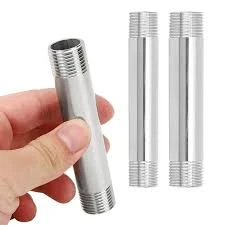-
Cangzhou Yulong Steel Co., Ltd.
-
Phone:
+86 13303177267 -
Email:
admin@ylsteelfittings.com
- English
- Arabic
- Italian
- Spanish
- Portuguese
- German
- kazakh
- Persian
- Greek
- French
- Russian
- Polish
- Thai
- Indonesian
- Vietnamese
- Zulu
- Korean
- Uzbek
- Hindi
- Serbian
- Malay
- Ukrainian
- Gujarati
- Haitian Creole
- hausa
- hawaiian
- Hebrew
- Miao
- Hungarian
- Icelandic
- igbo
- irish
- Japanese
- Javanese
- Kannada
- Khmer
- Rwandese
- Afrikaans
- Albanian
- Amharic
- Armenian
- Azerbaijani
- Basque
- Belarusian
- Bengali
- Bosnian
- Bulgarian
- Catalan
- Cebuano
- China
- China (Taiwan)
- Corsican
- Croatian
- Czech
- Danish
- Esperanto
- Estonian
- Finnish
- Frisian
- Galician
- Georgian
- Kurdish
- Kyrgyz
- Lao
- Latin
- Latvian
- Lithuanian
- Luxembourgish
- Macedonian
- Malgashi
- Malayalam
- Maltese
- Maori
- Marathi
- Mongolian
- Myanmar
- Nepali
- Norwegian
- Norwegian
- Occitan
- Pashto
- Dutch
- Punjabi
- Romanian
- Samoan
- Scottish Gaelic
- Sesotho
- Shona
- Sindhi
- Sinhala
- Slovak
- Slovenian
- Somali
- Sundanese
- Swahili
- Swedish
- Tagalog
- Tajik
- Tamil
- Tatar
- Telugu
- Turkish
- Turkmen
- Urdu
- Uighur
- Welsh
- Bantu
- Yiddish
- Yoruba

Dec . 04, 2024 18:11 Back to list
forged threaded fittings
Understanding Forged Threaded Fittings An Essential Component in Various Industries
Forged threaded fittings are critical components in plumbing, oil and gas, and construction industries. They play an essential role in connecting pipes, allowing for a secure and leak-proof system. This article explores the nature, types, advantages, and applications of forged threaded fittings, highlighting their significance in modern infrastructure.
What are Forged Threaded Fittings?
Forged threaded fittings are manufactured through a process that involves shaping metal using compressive forces. This process enhances the material's strength and durability compared to cast fittings, making them suitable for high-pressure and high-temperature applications. After forging, these fittings undergo threading processes, allowing them to be connected to pipes seamlessly.
Types of Forged Threaded Fittings
There are several types of forged threaded fittings, each designed for specific functions
1. Elbows These fittings allow for direction changes in piping systems. Common angles include 90 and 45 degrees, enabling efficient fluid flow management.
2. Tees Used to connect three sections of pipe, tees are vital for branching pipelines. They can be used in various configurations, such as equal tees for same-sized pipes or reducing tees for different diameters.
3. Couplings Couplings are used to connect two pipe ends together. They are crucial in extending sections of pipe and replacing damaged fittings.
4. Caps Applied at the end of a pipe, caps provide closure, preventing the loss of fluids or gases. They are essential for maintaining pressure in closed systems.
6. Bushings These fittings are used when a smaller pipe needs to be connected to a larger one. They effectively adapt the size of the connections without losing integrity.
Advantages of Forged Threaded Fittings
The use of forged threaded fittings in various applications comes with numerous benefits
forged threaded fittings

1. Strength and Durability The forging process significantly enhances the mechanical properties of the fittings, resulting in products that can withstand extreme environmental conditions, pressure, and temperature fluctuations.
2. Leak-Proof Connections Forged fittings provide tighter seals than their cast counterparts, reducing the risk of leaks in critical systems like water pipelines and gas conduits.
3. Cost-Effectiveness Although the initial investment may be higher, the longevity and reduced maintenance costs of forged fittings make them an economical choice over time.
4. Versatility These fittings are available in various materials, including stainless steel, carbon steel, and alloy steel, making them suitable for diverse applications in different sectors.
5. Reduced Weight Forged fittings are generally lighter than cast fittings, which simplifies installations and can reduce shipping costs.
Applications of Forged Threaded Fittings
Forged threaded fittings are integral to various sectors, including
1. Oil and Gas Industry In this sector, forged fittings are used to connect pipes in high-pressure applications, such as oil rigs and refineries, ensuring efficient transport and safety of hydrocarbons.
2. Plumbing and Water Supply They are commonly used in commercial and residential plumbing systems, where reliable and leak-proof connections are paramount.
3. Manufacturing In manufacturing plants, forged fittings are employed in piping systems that handle chemicals, steam, and other processes requiring robust materials.
4. Automotive The automotive industry utilizes forged fittings in engine cooling systems, fuel systems, and exhaust systems, where resistance to heat and pressure is crucial.
5. Construction In construction projects, these fittings are vital for HVAC systems, fire protection systems, and other plumbing applications that require durable and reliable connections.
Conclusion
Forged threaded fittings are indispensable components in multiple industries, providing strength, reliability, and efficiency in piping systems. Their advantages over traditional fittings position them as the preferred choice for engineers and contractors aiming for high-quality and long-lasting installations. As industries continue to evolve and demand higher performance and safety standards, the importance of forged threaded fittings will only increase, solidifying their role in modern infrastructure development. Understanding their types, benefits, and applications empowers stakeholders to make informed decisions in selecting the right fittings for their specific needs.
Latest news
-
ANSI 150P SS304 SO FLANGE
NewsFeb.14,2025
-
ASTM A333GR6 STEEL PIPE
NewsJan.20,2025
-
ANSI B16.5 WELDING NECK FLANGE
NewsJan.15,2026
-
ANSI B16.5 SLIP-ON FLANGE
NewsApr.19,2024
-
SABS 1123 FLANGE
NewsJan.15,2025
-
DIN86044 PLATE FLANGE
NewsApr.19,2024
-
DIN2527 BLIND FLANGE
NewsApr.12,2024
-
JIS B2311 Butt-Welding Fittings LR/SR 45°/90° /180°Seamless/Weld
NewsApr.23,2024











